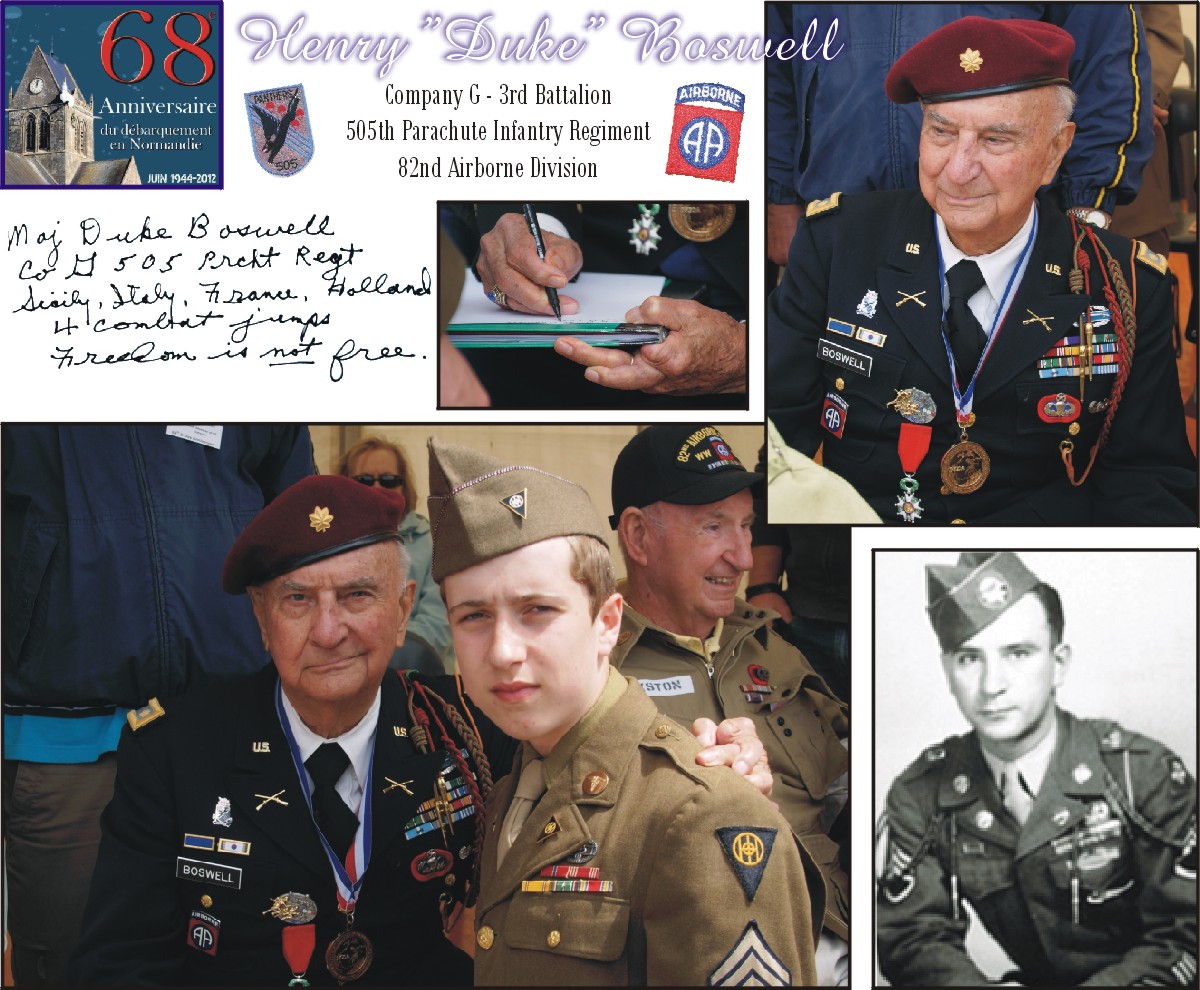Retired Army Major Henry "Duke" Boswell returned to France to mark the D-Day's 68th anniversary. He was part of the three Airborne Divisions that parachuted into Normandy just after midnight June 6, 1944.
Henry Boswell enlisted in the North Carolina Army National Guard at the age of 16. In June, 1942 he volunteered for the paratroopers and was assigned to Company G, 505th PIR, 82nd Airborne Division.
On July 10, 1943 Sergeant Boswell saw his first combat during the invasion of Sicily. A few months later he would parachute into Salerno, Italy and help liberate Naples in October 1943. During the invasion of Normandy, Boswell parachuted into Ste. Mere Eglise which would become the first French town liberated from the Germans. At Normandy he was assigned as a radioman, adding to the already heavy burden of rations, ammunition and weapons carried by paratroopers. The trim, 150-pound soldier was packing a 40-pound SCR-300 backpack radio, making his total burden equal his weight! "They had to help me onto the plane," he recalled.
Following combat in Normandy, Boswell would jump into Holland during Operation Market Garden and later fight in the Battle of the Bulge until January 1945. By the war’s end, of the original 146 men of G-Company, only 13 remained (including Boswell), who were not wounded or killed.
Boswell was discharged from the Army in 1945 but later reenlisted in 1946. After becoming an officer, he was assigned to the First Cavalry Division in combat in Korea. There, he fought in the breakout from the Pusan Perimeter until he was severely wounded by mortar fire. After recovering from his injuries, Boswell would remain in the Army until his retirement as a Major.
About the Normandy campaign he recalled: The official records of the 3rd Battalion of the 505th Parachute Infantry Regiment include his account and the bad luck of Boswell's unit has gone down in history.
"They were shooting at us as we were coming down," he remembered of his first trip to the city as part of an early morning wave of paratroopers that landed hours before the massive amphibious assault at Normandy.
"There was a fire in a building, and all the German soldiers in the town had come back out to guard the bucket brigade," he said.
The job of the parachutists was to pin down Germans who would otherwise be sent to the allied beachhead and to seize key villages and road junctions to speed invasion forces.
It was the kind of job Boswell was accustomed to. The then-staff sergeant had jumped into combat on the island of Sicily and Salerno, Italy.
The mortar wounds took Boswell out of combat jobs, but not out of the Army. He retired from Fort Carson as a major in 1963 before starting a new life as a D-11 school teacher.
While his group will go down in history as the "Greatest Generation," Boswell says the young people in uniform today are no different than the soldiers who drifted through gunfire into Sainte-Mère-Église.
"I know they feel the same way we did," he said.
